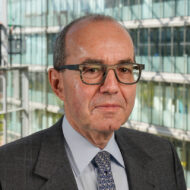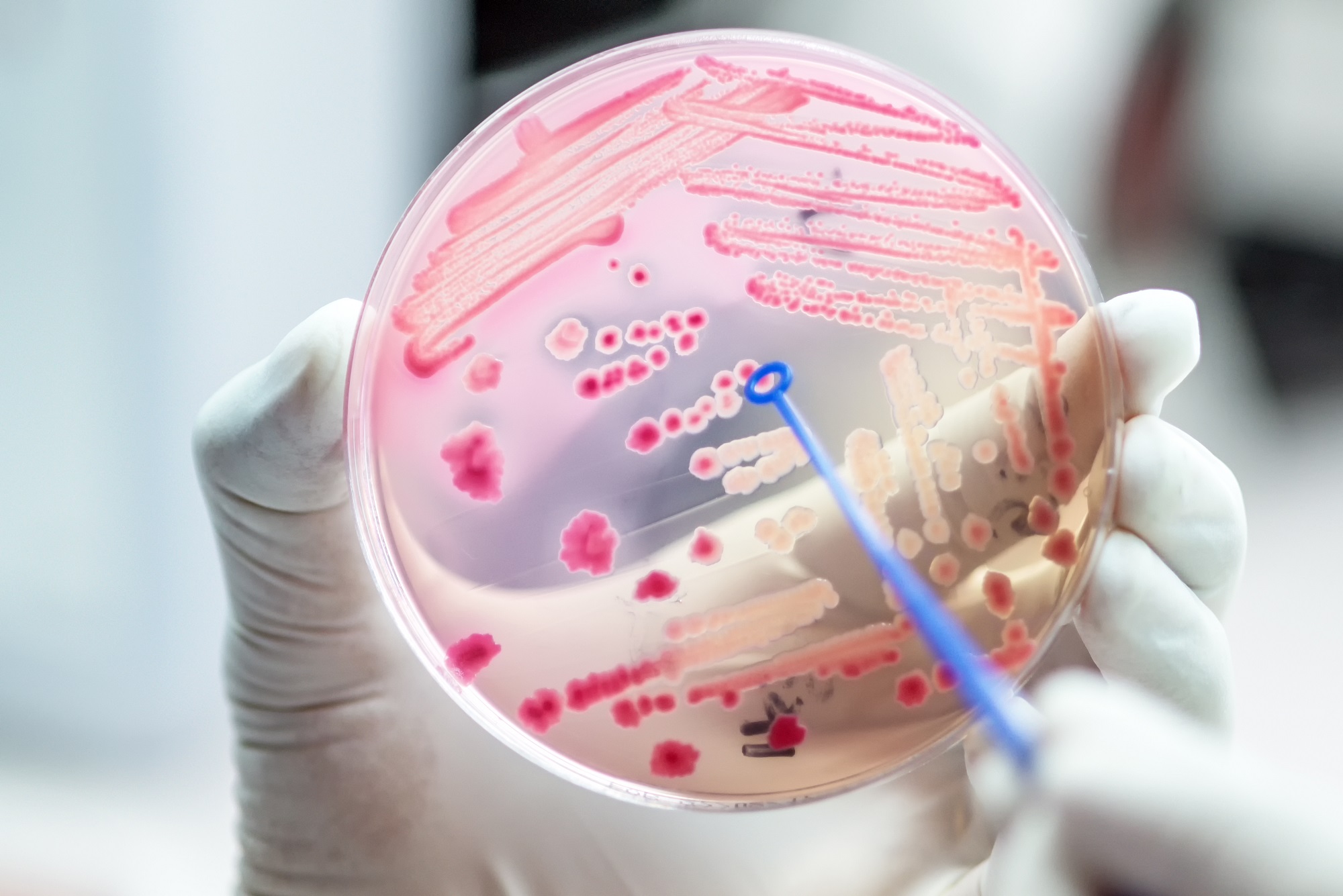2020: A game-changing year for AMR?
Dame Sally Davies, UK AMR Special Envoy and Thomas Cueni, IFPMA’s DG have shared platforms on panels. This time at the World AMR Congress, saw the duo in a different format, with Dame Sally pitching questions at Thomas Cueni and asking him if industry has done enough to tackle AMR. Global Health Matters has reproduced the highlights of this lively exchange.
(Listen to the full discussion here)
Dame Sally Davies: It is my pleasure to introduce my colleague, sparring partner and friend: Thomas Cueni, the Director of IFPMA, as my guest.
For the World AMR Congress audience here today, academics, biotechs as well as other more established companies, what can you tell them about what pharma is doing to tackle the spread of antimicrobial resistance?
Thomas Cueni: In 2017, the biopharmaceutical industry signed the Davos AMR Declaration and the subsequent policy framework which was launched at UN High Level Meeting that same year on AMR. Industry called for the reduction of antibiotic discharge into the environment; the appropriate use of antibiotics; a better management of access to antibiotics and last but not least, the need to get new antibiotics, which means R&D.
These initiatives led to the creation of the AMR industry Alliance which brings together 100 companies from the worlds of biotech, diagnostics, generics, and major biopharmaceutical companies. The Alliance tracks the companies’progress every two years. Over the past four years, the Alliance showed progress is being made in educating health professionals to use antibiotics sparingly, it showed that we are making improvements in manufacturing to reduce environmental discharge as well as companies ensuring access even when new antibiotics are still in the pipeline. But the Alliance members have warned that strong signs of innovation could be stopped dead in its tracks if the issue of commercial incentives is not addressed.
That is why we have launched the AMR action fund this year.
Dame Sally Davies: What is the AMR Action fund and why did industry make the move?
Thomas Cueni: The AMR Action Fund is a unique initiative. I’ve been involved in the pharmaceutical industry for many years and I do not recall any collective initiative where more than 20 companies have worked together to provide one billion dollars to invest in something where there’s no money to be made.
One of the reasons for launching the initiative is that the industry has been criticized for exiting the antibiotics field and for not understanding the public health expectation.
As an industry, we noticed that despite the G20, G7 and other UN interagency coordination group meetings pondering on World Bank and OECD reports on the matter, not much was happening. And at the same time, we realised that if we continued to wait for governments to make a move, we would not get anywhere, and the pharmaceutical industry would be criticized for its inaction.
Moreover, throughout the years we have witnessed a decline of research into novel antibiotics from big pharma while there was a flourishing pipeline of biotech companies in the field. We were seeing big pharma companies exiting the antibiotics field. But we also noticed that there had been much more promise in discovery and early antibiotic research, but then there was the “valley of death” with venture capital exiting the field and none of the big pharma companies interested in stepping in and investing in biotech companies since there was no market.
This is where the AMR Action Fund will really make a difference as it will provide a bridging fund to bring 2 to 4 novel antibiotics to market approval within the next 10 years based on the WHO and CDC list of pathogens. And all this will buy us time to drive policy change.
Dame Sally Davies: If cancer drugs are among the industry’s more profitable areas, then why don’t companies want to protect their production lines by making new antibiotics available to protect people who will inevitably get infections? If the whole health system is threatened as antimicrobial resistance increases, why is it that investors fail to see the return on investment? I think they are being very short term. What do you think?
Thomas Cueni: It is a question of moral hazard. If you need to convince your shareholders to invest in antibiotic research, the truth of the matter is that within the current market, the worst that can happen is that you succeed with novel antibiotic research, rather than just having to write off your investment. Therefore, even if there is an attractive market in oncology or in dementia research, which is another example which I use quite often, you have a 99.7% chance of failure. But you still have billions of dollars invested in dementia research because if you do hit the target, it will be a deserved return on investment. Whereas in the antibiotic field, if you do hit the target, you will lose more money than if you never got involved and that is not that easy to explain to your shareholders.
Therefore, of course I strongly agree with you that there is a broader public good and we need to make sure that we do get novel antibiotics off the ground. However, if the market economics do not change, it will be hard. That is why I think it was a tough act to convince big pharma to come up with an initiative where nobody expects to make money, at least not in the short term.
Dame Sally Davies: Who stands to receive these funds? I’m sure many are eager to send you their proposals.
Thomas Cueni: Before launching the Fund, I had companies asking why they should cross subsidise the development of other companies and why companies that are still in the antibiotic space should invest even more.
One thing is clear, the Fund will not cross subsidise research from big pharma. The Fund is looking to invest in assets from small biotech companies and will invest into phase 2 and later, phase 3 development. We do not want it to overlap with what CARB-X and others are doing.
This is clearly not about money because if it was only about money one could go for Plan B and nationalise antibiotic research but that would be the wrong response because big pharma is better equipped to invest in risky research and making sure there is a return on investment.
Moreover as an engaged investor, the Fund, will provide skill sets and support to biotech companies in terms of development, skills and discipline (for example, the ability to write off an investment instead continuing to lose money) and bring its expertise in regulatory, formulation and scalability.
We have made sure that the Fund has very strict conflict of interest rules with a world-class Independent Scientific Advisory Board that will ensure its independence. The investors on the Board will set the overall strategy but not delve into individual investing decisions.
Dame Sally Davies: Will 2020 be a game changing year for AMR?
Thomas Cueni: I believe that we do have a chance.
Some asked if we should wait until after COVID-19 to launch the Fund and my argument was to the contrary: COVID-19 was a wakeup call for the world. The COVID-19 pandemic caught many countries ill prepared, whereas AMR is something we have known about for a long time and we can do something about.
Like Kevin Outtersen once said, “AMR is not a tsunami like SARS-COV-2, AMR is like a melting glacier where you know the doom you are in.”
Fortunately, we know what needs to be done, we know we need to get our act together in terms of appropriate use and research. To borrow the title of the OECD Report on AMR “Stemming the tide just a few dollars more” if you compare the impact of COVID-19, where the world economy is losing $375 billion per month – to stem the tide of AMR would take just a few dollars more. However, we do need incentives and we need to recreate the market.
I hope that we will see change in the next three to five years, because if we don’t see change, I’m not sure that 2020 would have been a game changer which I think you and I hope it is.
Dame Sally Davies: Do you think we can use COVID-19 and if so, how should we use it to get governments to move and innovate around AMR?
Thomas Cueni: I think COVID 19 will help us because I now see a lot of people talking about future pandemic preparedness and agreeing that a strong pharma industry is the only one that can provide scalable solutions. We know that COVID-19 treatments and vaccines will come from big pharma in collaboration with academics and biotech companies.
COVID 19 has opened our eyes to the importance of pandemic preparedness and has given us a chance to prioritise AMR on the global agenda.
I call AMR a “silent killer” because there are no patient groups sounding the alarm. However, I am pleased to see that consumers are increasingly mobilising. For example, UICC has started talking about AMR and cancer care because many cancer patients are dying of secondary infection and not of cancer. Therefore, we need to mobilise consumers. I believe a coalition of the willing will have a faster and bigger impact on the incentive to invest. But there also needs to be strong public health and access provisions – and that is why we teamed up with the Wellcome Trust, the European Investment Bank and WHO early on, because if whatever comes out of the research is shared without clear certified stewardship prohibitions, we might run into new resistance much faster. But I am optimist and I do believe that 2020 can be a game-changing year for the positive.
Dame Sally Davies: This is a very good point to finish on, with the agreement that this year could be an important year for AMR.
Let me call on the audience: You can make a difference, join in, and help us turn the tide on AMR.
Author





